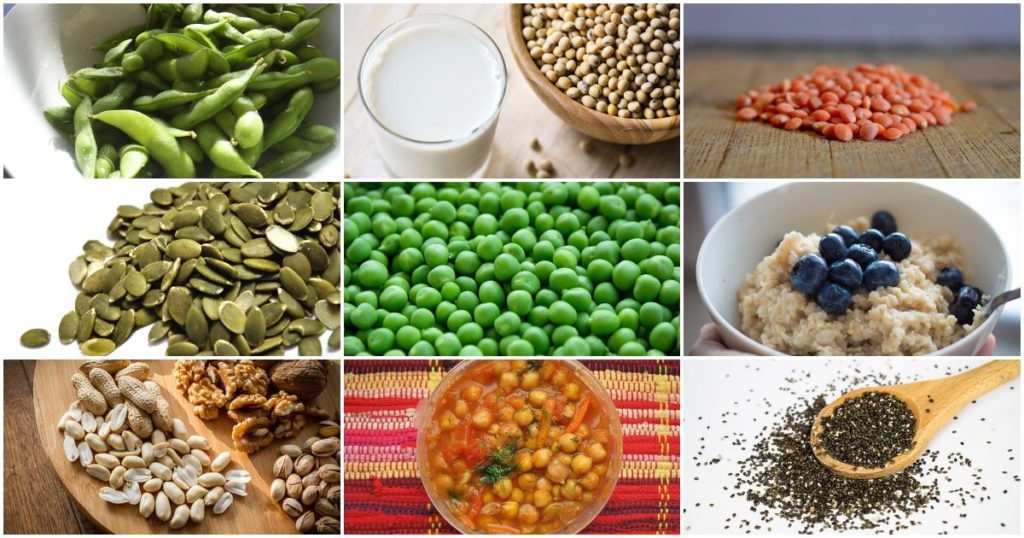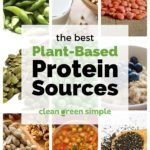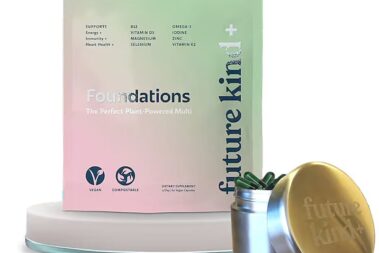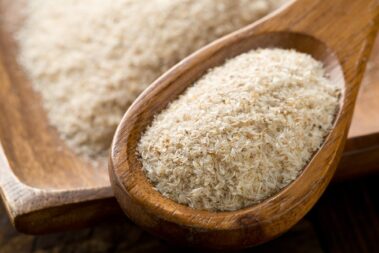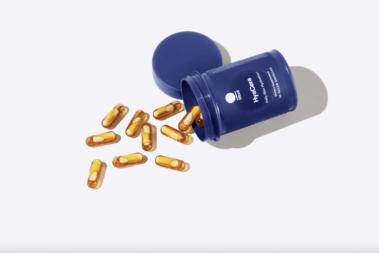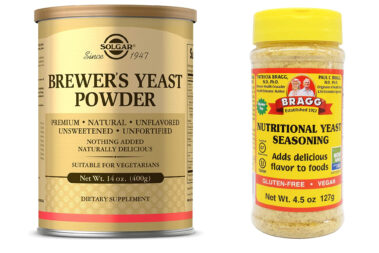Protein is an essential component of a healthy diet. It plays a critical role in construction and maintenance of the major structural components of your body including muscle, bone, skin, digestive enzymes, hormones, and blood cells.
Most people associate the word “protein” with animal-based foods such as meat, dairy, and eggs due to the fact that animal protein sources tend to provide a more concentrated supply of protein than plants do. But that doesn’t mean plant-based proteins are any less valuable.
In fact, increasing the plant proteins on your plate may actually be more beneficial because they also typically come with substantial doses of antioxidants and fiber—nutrients many modern diets are lacking.
Furthermore, some research shows diets that contain more plant-based proteins are associated with a variety of health benefits including lower blood pressure, reduced cholesterol, improved insulin sensitivity, and generally longer lifespans (1).
This article will explore 17 of the best plant-based protein sources including tips for ensuring you’re meeting your protein needs while following a vegan or vegetarian diet.
[hfcm id=”14″]
Table of Contents
1. Tempeh, tofu, and edamame

Soy-based foods such as tempeh, tofu, and edamame are among the few plant-based protein sources that are considered complete—meaning they contain all 9 essential amino acids you need to build and repair any protein-containing tissues in your body.
Of the three, tempeh contains the largest amount of protein at 34 grams per cup. Tofu and edamame are not too far behind, with each providing about 18 grams of protein per cup (2, 3, 4).
2. Lentils
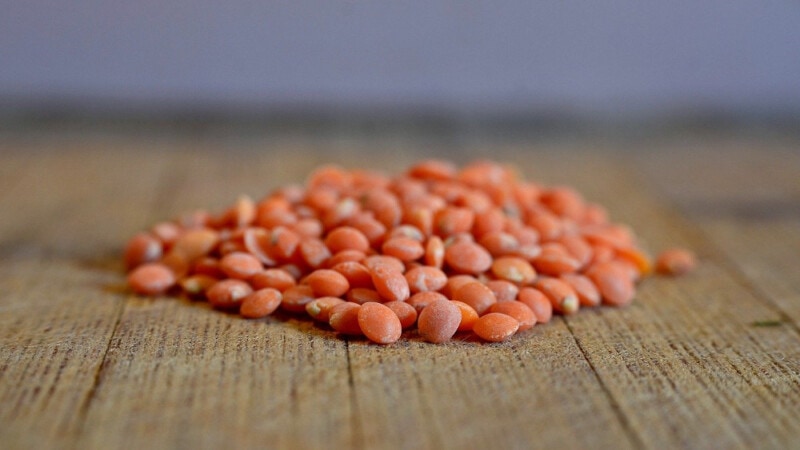
Not only are lentils an excellent source of plant-based protein, they’re also loaded with fiber and essential nutrients like folate and iron.
A one-cup serving of cooked lentils provides 18 grams of protein and over 50% of the daily recommendation for fiber (5).
An added bonus is that lentils don’t require soaking and they cook much faster than other types of dried legumes.
3. Chickpeas and other beans
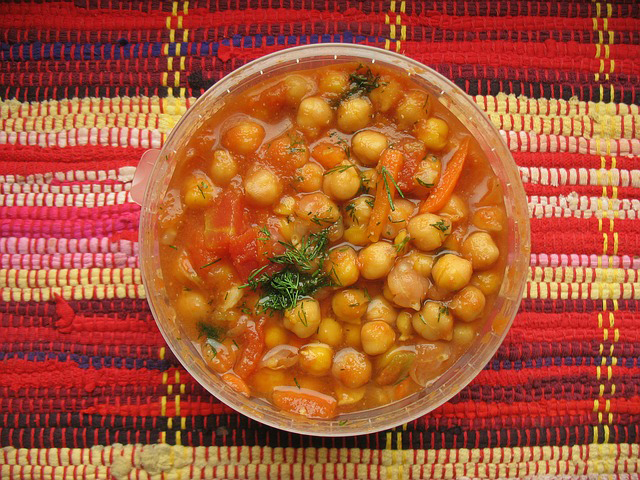
Chickpeas—also known as garbanzo beans—are one of the most versatile plant-based protein sources. Their mild, somewhat nutty flavor allows them to pair well with a variety of different cuisines and culinary applications.
One cup of chickpeas provides 14 grams of protein alongside 12 grams of fiber (6).
If chickpeas aren’t your thing, other types of beans—such as black beans, kidney beans, white beans, and pinto beans—provide similar nutritional benefits and are equally delicious.
If you don’t eat beans often, or usually just eat one type, try bringing some new ones into your rotation to add diversity to your diet.
4. Nuts and nut butters
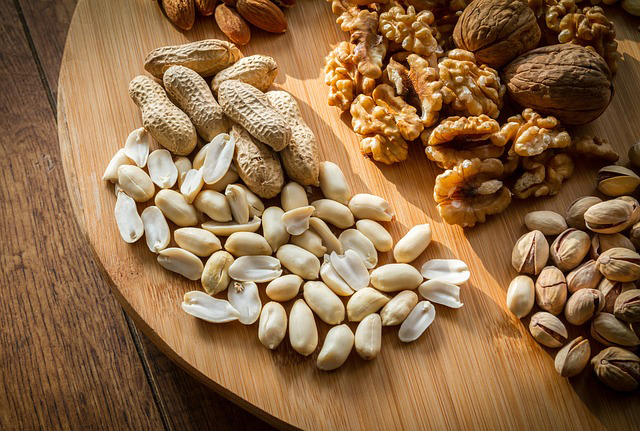
Peanuts and tree nuts are another great source of plant-based protein that double as a source of healthy fats and fiber.
There may be slight variations in total protein content depending on the specific type of nut you’re eating, but generally a quarter cup provides somewhere between 7-10 grams. Like with other foods, diversity is important so aim to include a variety of nuts in your diet to obtain the most benefit (7, 8, 9).
Peanuts, almonds, cashews, walnuts, pistachios, pecans, and brazil nuts are all excellent options. Eat them by the handful, sprinkle them on salads and soups, or enjoy them ground into a butter to add to smoothies or a slice of whole grain toast.
5. Hemp seeds
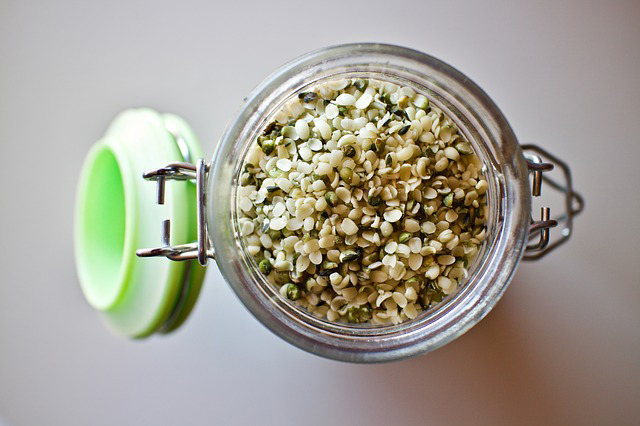
Hemp seeds, or hemp hearts, are the seeds that come from the Cannabis Sativa plant. Although related to the cannabis plants people smoke, hemp seeds come from a different variety and do not have any psychoactive effects (10).
Hemp seeds are nutritionally unique because they’re considered a complete protein and contain a rich supply of omega-3 fats—a type of fat that tends to be lacking in vegan and vegetarian diets (10, 11).
Just 3 tablespoons of hemp seeds provide 10 grams of complete plant-based protein (12).
Add them to smoothies, salads, or quick-bread batters, or use them as a topping for oatmeal and your favorite plant-based yogurt.
6. Chia seeds

Like hemp seeds, chia seeds offer a source of complete plant-based protein and omega-3 fats, plus a hefty dose of fiber (13).
Two tablespoons of chia seeds provide about 5 grams of protein, 11 grams of fiber, and a variety of essential minerals (14).
What makes them especially unique is their ability to absorb liquid. When mixed in water, coconut milk, juice, or any other liquid, chia seeds expand and create a gel. You can use this feature to your advantage when making homemade puddings, jams, and spoon-thick smoothie bowls.
7. Pumpkin seeds

Pumpkin seeds, or pepitas, are the edible shelled seeds that come from pumpkins.
A quarter cup of pumpkin seeds provides about 9 grams of protein and almost 40% of the daily recommendation for magnesium. They’re also an excellent source of heart-healthy fats (15).
Enjoy them raw or toasted by the handful or mixed into granola, trail mix, or on top of pancakes, oatmeal, salads, or grain bowls.
8. Soy milk
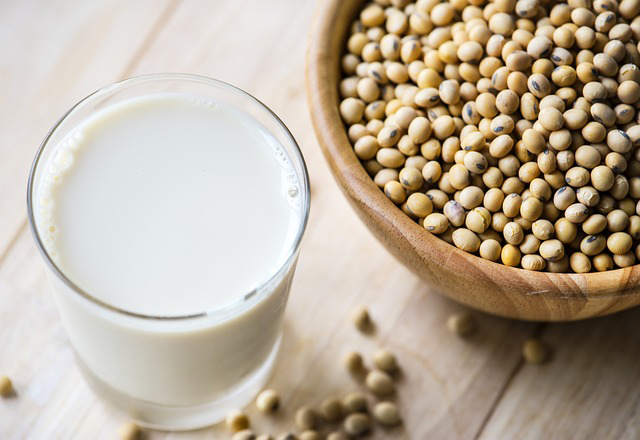
There are countless cow’s milk substitutes on the market today, but when it comes to protein, soy milk takes the cake.
A cup of soy milk provides 6-8 grams of protein, which is substantially more than the majority of other plant-based milk options including almond, oat, hemp, or cashew milk (16).
When choosing a cow’s milk substitute—soy or otherwise—be sure to check the ingredient label and avoid those that contain added sugar.
9. Amaranth, quinoa, and other ancient grains

Grains are often overlooked as a viable protein source; however, many types of whole grains may actually make a significant contribution to your daily protein intake.
Ancient grains in particular—such as quinoa, amaranth, and teff—are some of the highest protein grains available, providing 8-10 grams of protein per cup (17, 18, 19).
These varieties also happen to be gluten-free, making them a great choice for those with gluten allergies or intolerance.
10. Peas

Green peas can be a bit of a polarizing food; most people either love them or hate them. Regardless of which camp you’re in, there’s no denying they’re a great way to boost the protein content of a plant-based meal.
One cup of green peas provides 8 grams of protein and an almost equivalent amount of fiber (20).
Add green peas to soups, stews, casseroles, and pasta dishes, or try blending them with herbs and olive oil to make a protein-rich pea pesto.
11. Oatmeal

A cup of cooked oatmeal provides 5 grams of protein, 4 grams of fiber, and over 8% of the daily recommendation for selenium, magnesium, and iron (21).
Oatmeal also happens to be an excellent vehicle for mixing with other protein-rich foods such as nuts, seeds, and soy milk. You may also consider adding oats to cookies, pancakes, and quick-breads, or using them as a base for homemade muesli.
12. Nutritional yeast

Nutritional yeast is made from the same type of yeast used to bake bread and brew beer, but it’s technically a different product because the cells that make up nutritional yeast are inactive.
A tablespoon of nutritional yeast contains about 4-6 grams of high quality, complete protein. Many varieties are also fortified with vitamin B12, a nutrient that tends to be very low in vegan diets (22).
Nutritional yeast is often described as having a savory, somewhat cheesy flavor which lends itself well as a topping for popcorn or as a flavor enhancer for vegan-style cheese sauces. It’s also delicious sprinkled over rice, pasta, sauteed tofu, or roasted vegetables.
13. Non-dairy yogurt
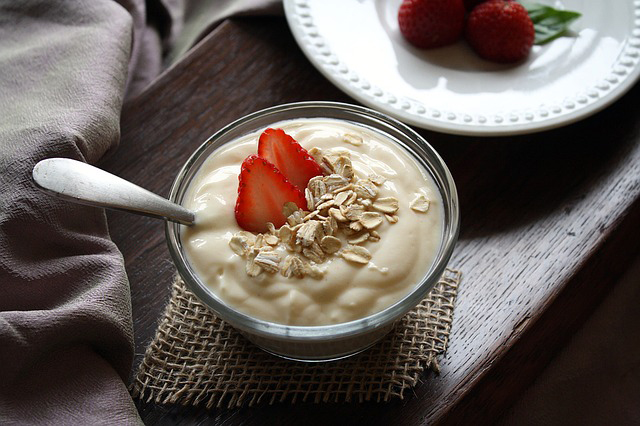
In addition to being a simple way to get your daily dose of probiotics, some non-dairy yogurts can offer a decent supply of protein.
Specific brands, such as Daiya’s greek-style coconut yogurt provides 6 grams in each 5 ounce container. Daiya yogurts are also relatively low in sugar and fortified with nutrients that can be difficult to obtain on a vegan diet, like vitamins D and B12 (23).
Vega Protein recently released a cashew-based yogurt that contains 13 grams of protein per serving. Vega’s yogurt doesn’t provide vitamin D or B12, but it does provide 25% of the daily recommendation for iron and 6 grams of fiber per serving (24).
The vegan yogurt scene is gaining lots of momentum and there are more options available than ever. But it’s important to note that not all of them are a good source of protein. Many provide only 1-2 grams per serving, so be sure to check the label before making your final decision.
14. High protein vegetables
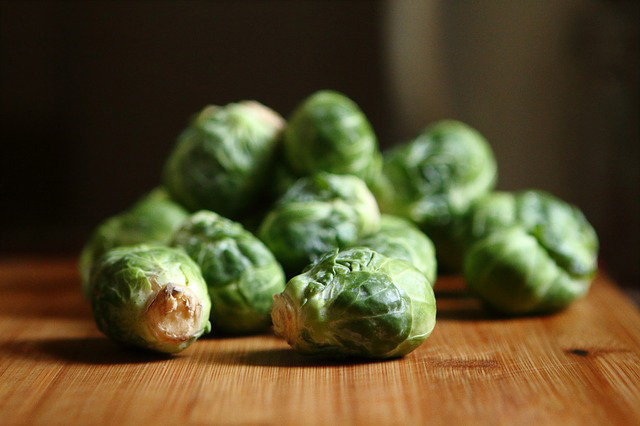
If you’re following a vegan diet, it may be beneficial to consider the ways in which each food group can contribute to your total protein intake.
Although vegetables aren’t generally considered high-protein compared to other food groups, certain varieties do offer more than others. Including more of the higher protein veggies on your plate can help you maximize your protein intake throughout the day.
Vegetables like brussels sprouts, potatoes, asparagus, corn, and spinach can provide up to 4-5 grams of protein per serving, whereas carrots, green beans, and tomatoes provide less than 2 grams (25, 26, 27, 28).
15. Plant-based protein powders

Although obtaining protein from whole foods is ideal, it may be difficult for some people to meet their needs this way.
If you find that you’re having trouble eating enough protein, a supplement can be a great way to fill in the gaps.
There are more plant-based protein powders available than ever. However, supplements in the United States are not regulated by the FDA, so always opt for those that have been tested by a third party to ensure purity and quality.
When choosing a protein powder opt for those that are low in sugar and contain high quality ingredients. Vega, Garden of Life, and OWYN are all good brands to check out. They come in a variety of flavors so you can choose which one best suits your tastes and fits what you’ll be using it for.
Try mixing the powder into your smoothies, soups, pancakes, and waffles for an extra boost of protein.
16. Spirulina

Spirulina is a type of blue-green algae that is arguably one of the most unique sources of plant-based protein around. It is typically marketed as a nutrition supplement and can be found in capsule or powder form.
Each teaspoon of spirulina powder contains 1 gram of complete protein and over 5% of the daily recommendation for iron, thiamin (vitamin B1), and riboflavin (vitamin B2). It’s also a rich source of potent antioxidant and anti-inflammatory compounds which may play a role in supporting immunity and gut health (29, 30).
The simplest, most popular way to use spirulina is to add it to smoothies or fresh juices, but you’re really only limited by your imagination. Try incorporating it into homemade sorbet, chia pudding, overnight oats, or a batch of muffins. Just remember that whatever you put it in will turn a deep blue-green color.
17. Seitan
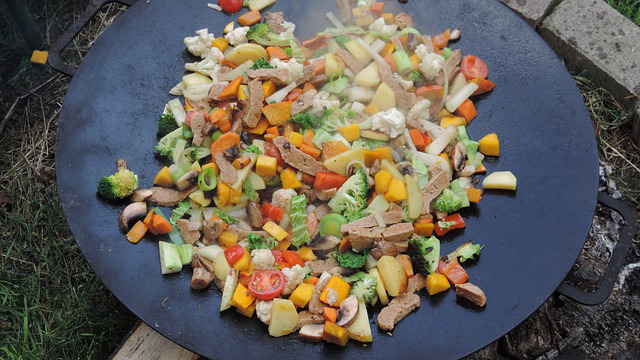
Seitan is a type of plant-based protein made from wheat gluten. It is one of the most popular vegan proteins because its dense, chewy texture closely resembles that of real meat.
A 4-ounce portion of seitan can contain up to 28 grams of protein, though the exact quantity may vary depending on the brand and preparation style (31).
Seitan is a great alternative to soy-based meat substitutes for people who have soy allergies, but because it is made from gluten, it is not appropriate for people with gluten allergies or intolerances.
However, even if you do tolerate gluten, it may still be a good idea to practice moderation when incorporating seitan into your diet. Although there’s nothing wrong with eating it occasionally, seitan is a highly processed food.
Research suggests that diets made up of whole, minimally processed foods are generally more health-promoting than those that rely on ultra-processed foods. Thus, it’s best to emphasize whole food sources of protein the majority of the time (32, 33).
If you do choose to eat seitan frequently, just make sure you’re still including a variety of whole grains, fruits, vegetables, legumes, nuts, and seeds in your diet, too.
Meeting Your Protein Needs
Getting adequate protein on a vegan or vegetarian diet is entirely possible, but knowing how much you need can help you make sure you’re hitting your targets each day.
At minimum, everyone should be aiming for at least 0.8 grams of protein per kilogram of your bodyweight. However, some experts think you should probably shoot for upwards of 1.2-1.6 grams per kilogram, especially if you’re following a restrictive diet—such as vegan or strict vegetarian. Roughly 20-30 grams of protein per meal is a reasonable goal for most healthy, moderately active individuals with a few protein-rich snacks in between (34).
Because many plant-based protein sources aren’t complete proteins, a highly varied diet is essential for making sure you consume adequate amounts of all 9 essential amino acids, especially on vegan diets. If you follow a lacto-, ovo-, or lacto-ovo vegetarian diet, amino acid deficits are usually less of a concern.
It is imperative that you include a variety of foods from multiple food groups such as grains, legumes, nuts, and seeds to ensure your body has the tools it needs to build complete proteins from incomplete protein sources (35).
That said, protein requirements can vary significantly from person to person. Factors like activity level, weight, age, and health status can impact your needs. If you’re not sure you’re eating enough protein, consult your healthcare provider.
Takeaway
It’s a common misconception that animal proteins are necessary for a healthy diet. On the contrary, there are lots of plant-based foods that not only offer a rich supply of protein, but also contain fiber and essential vitamins and minerals that many Western diets lack.
The key to meeting your protein needs on a vegan or vegetarian diet is variety. Including different types of legumes, whole grains, nuts, seeds, dairy-alternatives, and supplements, when necessary, can help you meet your protein targets and support optimal health.
Thanks for sharing!
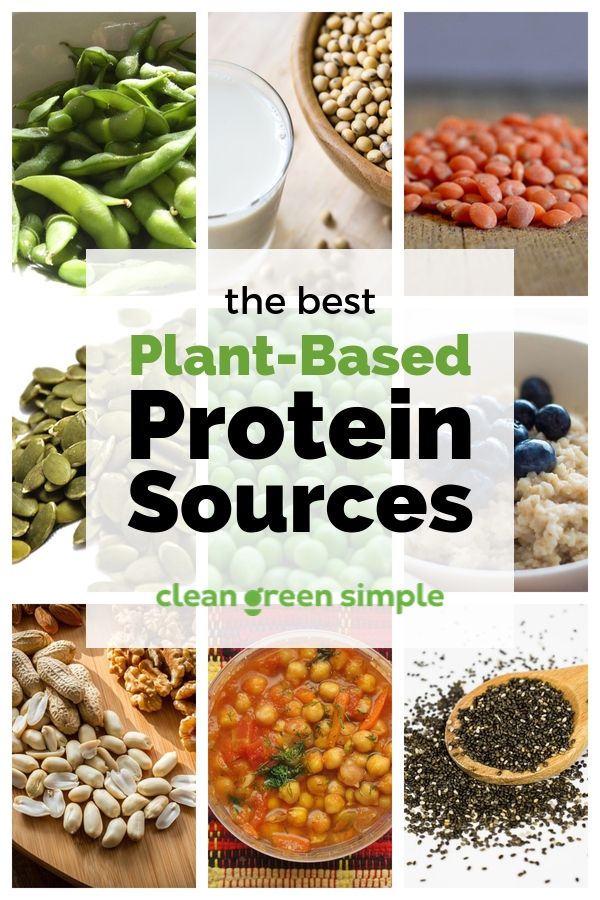
- 7 Best Vegan Prenatal Vitamins for a Healthy Pregnancy - November 10, 2020
- 10 Plant-Based Foods that Support a Healthy Immune System - March 25, 2020
- The 4 Main Types of Plant-Based Diets - February 21, 2020

